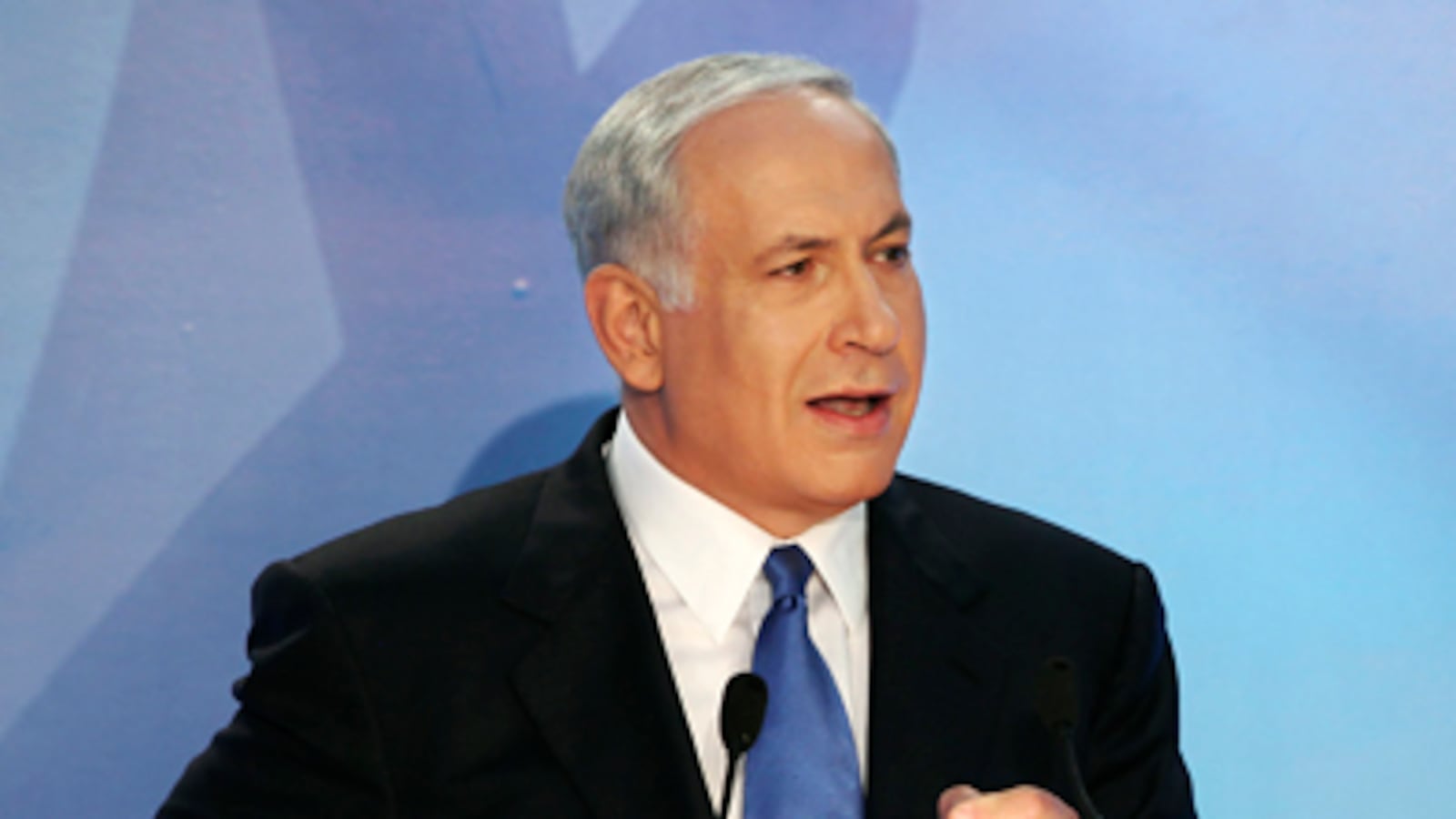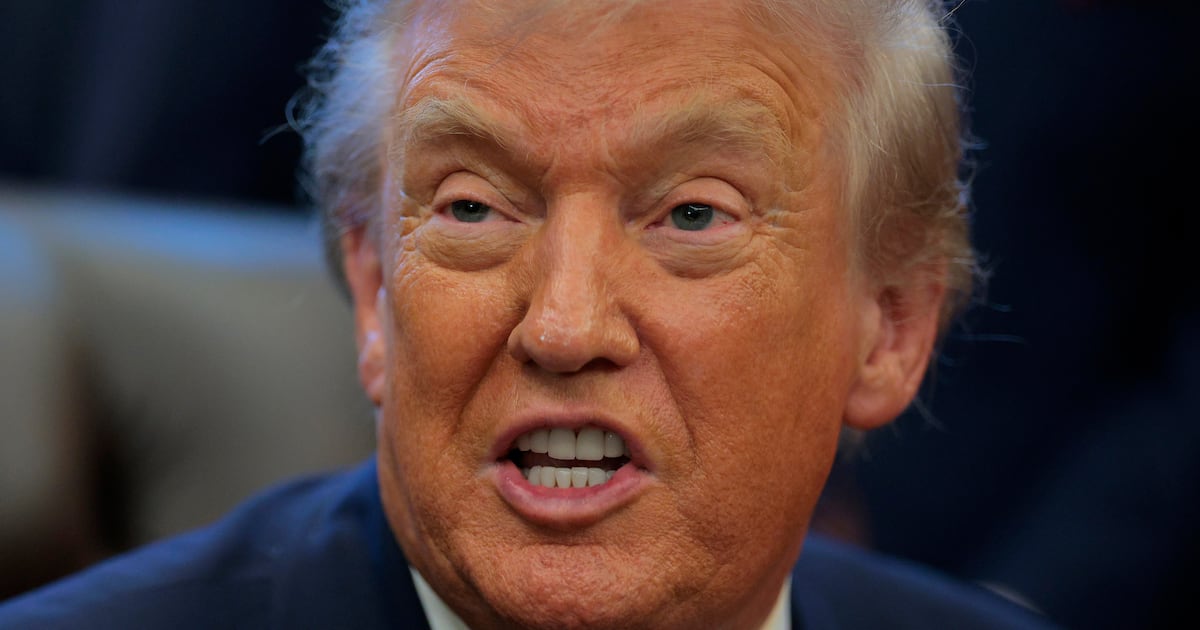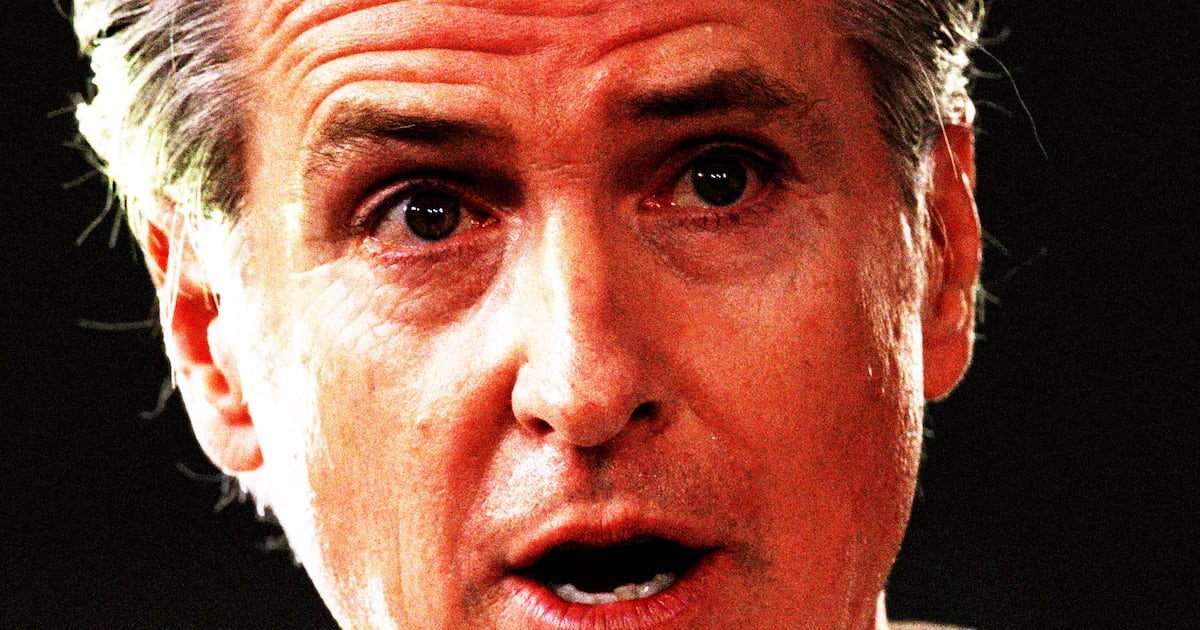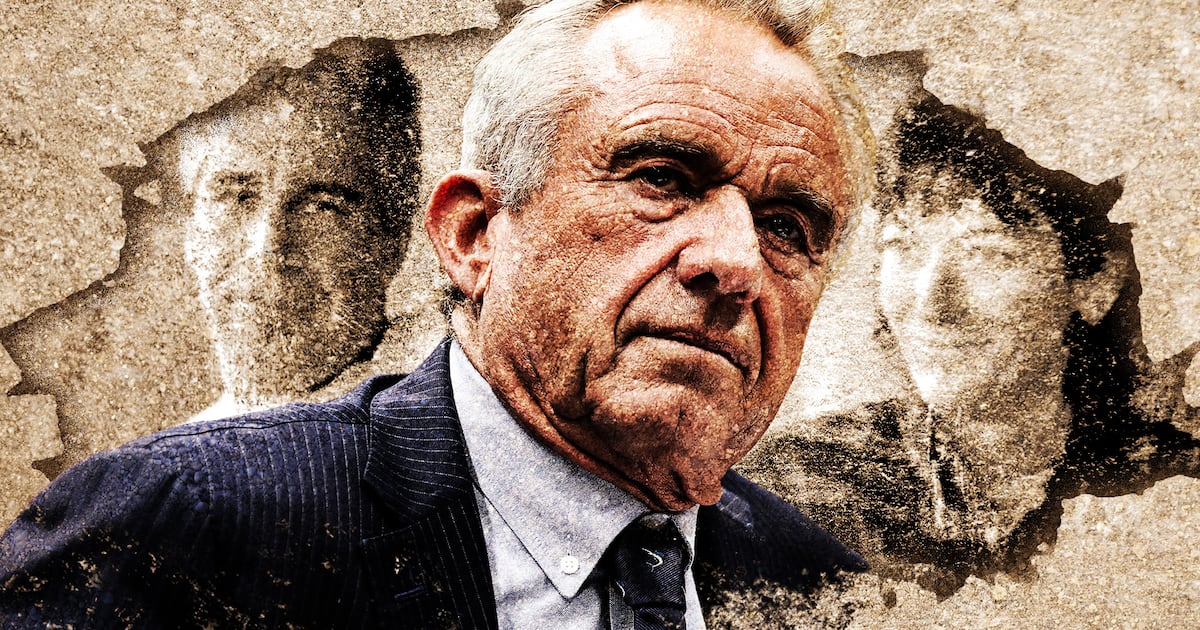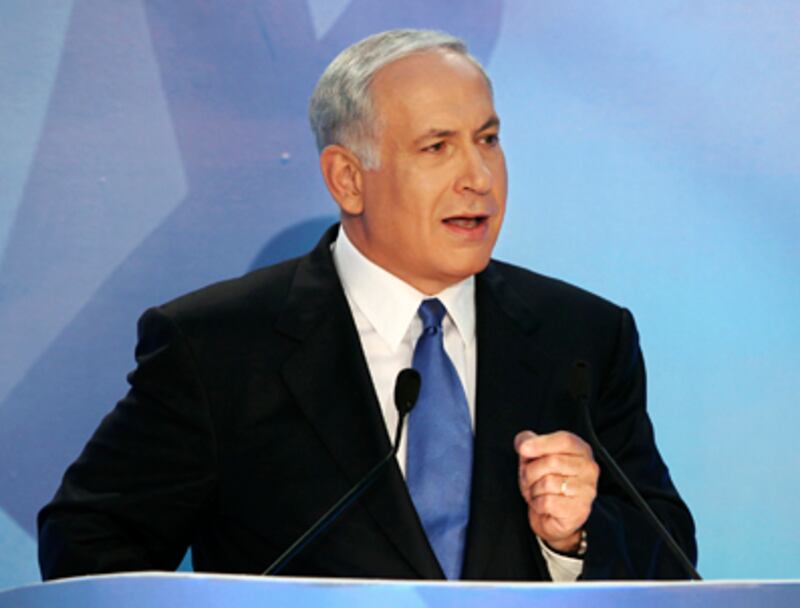
Expectations could hardly have been higher for Bibi Netanyahu’s speech Sunday afternoon at Bar-Ilan University. Today was Netanyahu’s opportunity—his last opportunity—to be Israel’s de Gaulle in Algeria, its Nixon in China, or to take a more recent example, its de Klerk in Cape Town. Barack Obama traveled to Cairo University to ask both Arabs and Jews to re-imagine themselves, their enemies, and the possibilities of peace.
Leading up to the speech, Netanyahu not only met with U.S. peace envoy George Mitchell, but also with Israel’s most respected and admired author, David Grossman, who lost his son on the final day of the failed invasion of Lebanon, together with the writer Eyal Meged. The authors pleaded with him to embrace the fateful moment and "take the path of giants." Over the weekend, he also met with Defense Minister Ehud Barak and President Shimon Peres. All reportedly urged him to embrace Obama’s plan to end settlement expansion and begin negotiations for the creation of a Palestinian state.
Netanyahu no doubt believes he bought himself some time with his rhetorical shift on the two-state solution.
Netanyahu had no choice but to at least feint in this direction. Anything less would be considered a direct slap in the face of Barack Obama, coming in the wake of his extremely well-received Cairo speech, and sour U.S.-Israeli relations at a moment when Netanyahu is seriously seeking U.S. support for a potential military attack on Iranian nuclear facilities, (however costly, politically, and minimal its possibility of achieving its aims).
But to really move forward with both the Obama administration and genuine peace talks with the Palestinians, Netanyahu would have had to be willing to alienate the members of his coalition to the point of risking the dissolution of his hard-line coalition and sharing power with his rival, Kadima’s Tzipi Livni. Likud’s Benny Begin, son of Menachem Begin, Israel’s Ronald Reagan, has promised to leave the government should anything substantial be yielded. The right-wing National Union head, MK Yaakov Katz, also threatened Netanyahu’s coalition, predicting that the prime minister would “not repeat the mistake of being unfaithful to his voters, which toppled his previous government.” (This being Israel, Katz also suggested that Netanyahu use the speech to make “a heroic appearance… in front of the entire world, like Shimon, Son of Mattityahu the Hasmonean, who declared—‘we have not taken a foreign land or ruled over foreigners’ property, but the land of our forefathers.’”)
So Bibi’s answer to this dilemma was a bait and switch. He did agree to endorse the notion of a Palestinian state alongside Israel, but he demanded as a condition of this endorsement, not only the demilitarization of a future Palestinian state—not a dealbreaker in and of itself but a precondition that the Palestinians recognize Israel as the Jewish state. "A public Palestinian recognition of Israel as a Jewish nation-state is a precondition for regional peace," he announced.
This condition not only forces Palestinians to relinquish their right of return in advance of discussions—something no Palestinian leader of political significance has ever been willing to do—but it also invites a charge of betrayal by Israel’s Palestinian population, which now constitutes approximately 20 percent of those living within its pre-1967 boundaries. ( According to Israel Business News, the relatively moderate Palestinian negotiator Saeb Erekat told television network Al Jazeera that in his speech, Netanyahu had unilaterally buried negotiations on a permanent settlement of the dispute, and that he would have to wait 1,000 years before he heard a single Palestinian willing to cooperate with his declarations at Bar-Ilan.)
No less significant, Netanyahu refused to make good on Israel’s May 2003 pledge to end its relentless settlement expansion, insisting on allowing what he calls their “natural expansion” to continue. According to Israel's Central Bureau of Statistics reports that in 2007—the most recent year for which there are figures—the West Bank settlement population grew 5.6 percent. As the Israeli-American journalist Gershom Gorenberg poins out, “That's three times faster than the growth of the Israeli population as a whole.”
Obama’s line in the sand, drawn in Cairo, could hardly have been clearer. “The United States does not accept the legitimacy of continued Israeli settlements,” he promised. “This construction violates previous agreements and undermines efforts to achieve peace. It is time for these settlements to stop.” And according to a poll published by the Israeli newspaper Yedioth Ahronoth, a majority of Israelis prefer a settlement freeze to a conflict with Obama on the issue. But not Bibi. As settler spokesman Pinchas Wallerstein proudly observed, "The speech made no mention of the evacuation of settlements or the freezing of construction. "
Netanyahu no doubt believes he bought himself some time with his rhetorical shift on the two-state solution. And his short-term position was undoubtedly strengthened by the unhappy turn of events in Iran this weekend. As the Israeli journalists Amos Harel and Avi Issacharoff pointed out in Haaretz that "from Israel's point of view, the victory of incumbent President Mahmoud Ahmadinejad is actually preferable. Not only because "better the devil you know," but because the victory of the pro-reform candidate will paste an attractive mask on the face of Iranian nuclear ambitions.”
But however worrisome the Iranian threat to Israel may be, the nation’s fundamental quandary remains inescapable. As difficult as it may appear to be to make peace with a corrupt and potentially powerless Palestinian Authority and a hostile Hamas, Israel’s other choices are actually worse: Either expel millions of Palestinians from their lands to preserve the state’s Jewish character or give up on democratic rule entirely, embracing a nightmare future much like that in South Africa under apartheid. Barack Obama offered Bibi Netanyahu an escape hatch, perhaps the last one Israel is likely to see while the conflict remains potentially solvable. Absent the pomp and circumstance, Netanyahu’s response could hardly have been clearer: “Thanks, but no thanks.”
Eric Alterman is a professor of English and journalism at Brooklyn College and a professor of journalism at CUNY Graduate School of Journalism. He is the author, most recently, of Why We're Liberals: A Handbook for Restoring America's Important Ideals.

